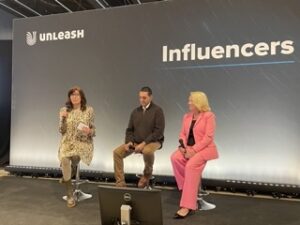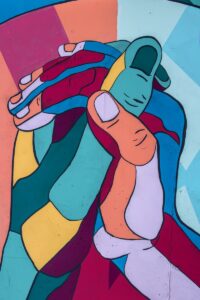Who's that Girl?
Adult Learners, Chopin, & Experiential Learning
Originally posted: March 9, 2022 on TrishMcFarlane.com
I heard a piece of music that made me cry. It may be because my hormones are diminishing as the days of menopause wind down. It may be because the thought that my children will soon be moving away to college and I’ll be lonely is on my mind. It may be because it touched some deep memory of taking piano lessons at Notre Dame High School when I was a child. I think it’s a mix of all three. Nonetheless, tears welled in my eyes when I heard Chopin’s Nocturne op. 9 No. 2. Take a listen:
In my job I spent time thinking about learning and development, recording podcasts on the subject, writing blog posts about it, and analyzing the latest learning technologies. And while I do this, it’s often with other adult learners in mind. It sometimes takes a non-typical source to spark the desire to learn in ourselves. When I heard the first few bars of the music, I immediately had a strong desire to learn the piece. And although I played classical compositions as a child and teen, I never learned this particular piece. I’m now on a mission to learn and experience not only this piece but to resume my practice to learn other pieces as well.
Much like my experience to achieve mastery, or some level of performance, of piano pieces, our employees need experiential learning too. What is experiential learning theory?
Experiential Learning Theory
As an analyst and former leader in learning and development for organizations, I fall back on steps for adult learners when starting a new learning endeavor. Specifically, I turn to the Institute for Experiential Learning for guidance on how to learn, or relearn, a skill for personal benefit.
-
-
-
- Learning outcome is not an endpoint– Many of the training opportunities in the workplace come from needing an employee to learn how to do a specific task. This type of learning need is common. The challenge for HR and other learning leaders is to think beyond the immediate “need” and give the employee learning opportunities that do not have an endpoint.
- New ideas take the place of old ideas we dispose of– One challenge in the workplace is we have employees who are not open to changing the processes or skills they use to complete a task or project. While we don’t need to change just for the sake of change, we need employees to dispose of old methods of doing things so they can learn new, more efficient and productive ways to achieve organizational goals.
- Learning is continuous throughout life– Continuous learning throughout your career is necessary for higher engagement. It is also a way to show the employee they are a valued part of the organization. This is especially valuable during the Great Resignation.
- Learning requires different skills depending on what field you’re learning- There isn’t a ‘one size fits all’ when it comes to teaching employees new skills. Think about your strategy for industry-related training, soft skill training, technical training, and job-related training. Each may require a different approach. Think of this as an opportunity to showcase the commitment the organization’s leaders have to the employees. The culture you create around training may be just what keeps your employees engaged and not ready to leave.
- I recommend checking out the work they are doing at the institute to think about your own learning and the future learning strategy for your organization. And while you do, consider playing a little Chopin for inspiration!
-
-
Author
Categories
Tags
Share
Related Posts
How we can help
Led by Trish Steed and Steve Boese, H3 HR Advisors harnesses over 40 years of experience to delivery HCM insights and guidance to global organizations.
H3 HR Advisory services
By leveraging technology, analytics, and our deep industry knowledge we can help you to reposition your workforce and ensure that you have the right people with the right capabilities in the right roles to positively impact the growth of your business.
HR Happy Hour Podcast Network
Created in 2009, The HR Happy Hour Show is hosted by Steve Boese and Trish Steed and is the longest continuously running internet radio show and podcast on Human Resources, HR Technology, Talent Practices, Workplace and Leadership topics.
H3 HR Speaking Services
We work closely with every client to customize your content - keynotes, webinars, research, infographics, and buyer’s guides - to inspire, educate and inform the audience enabling you to reset and realign your organization for a talent-led breakthrough.
Get in touch
Talk to us today and find out how we can help you and your organization leverage HCM technology to attract, onboard, retain and manage top talent.



